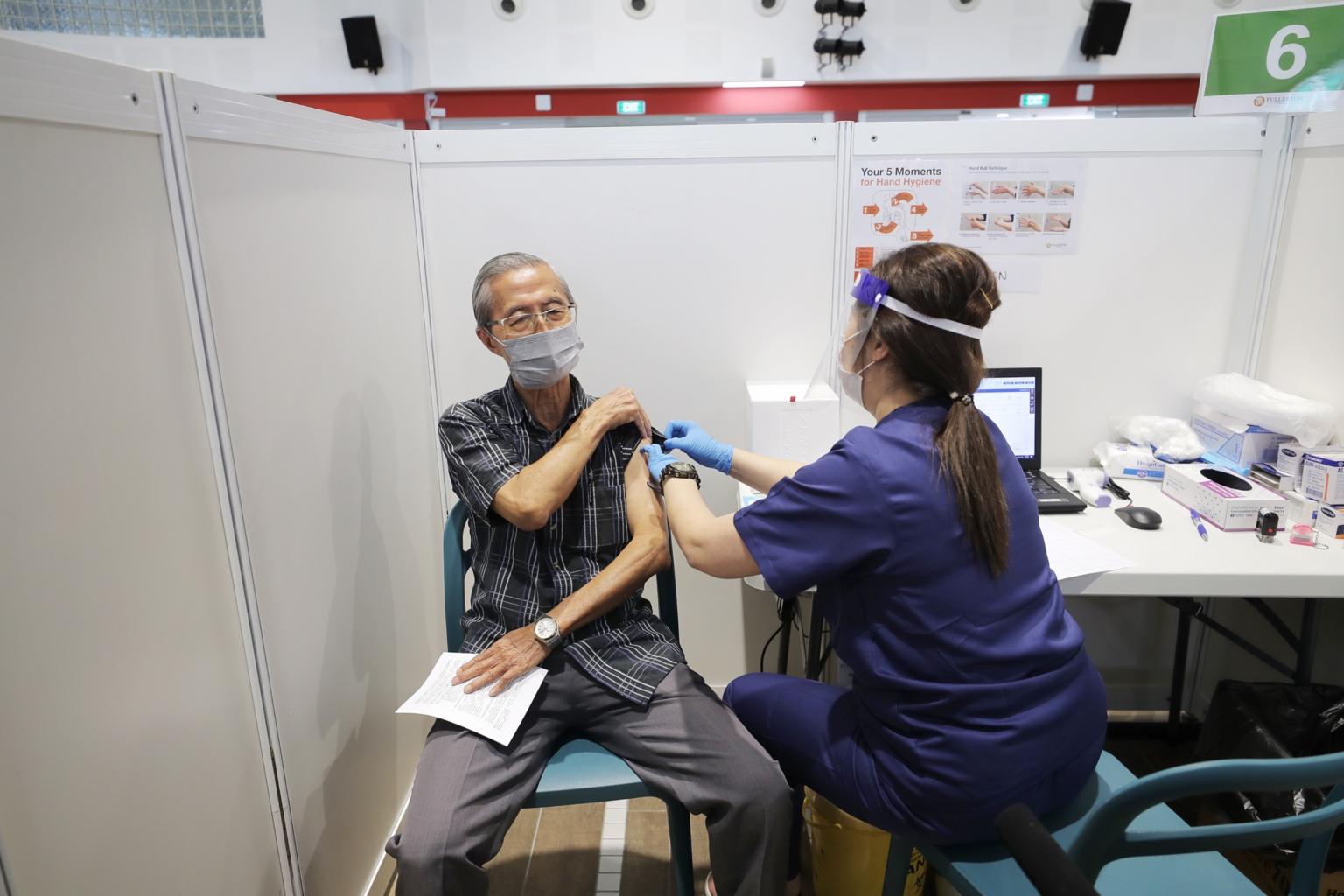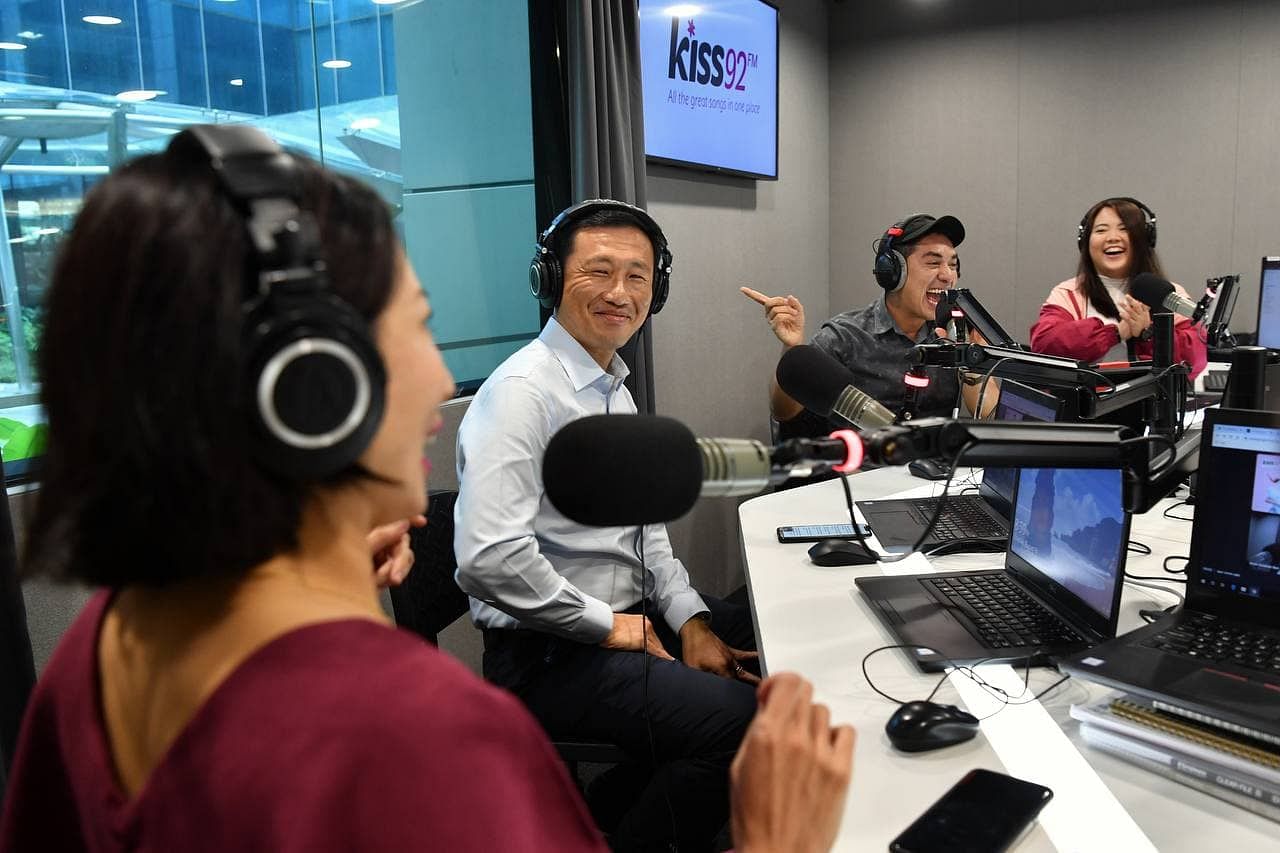Majority of seniors have received at least one dose of Covid-19 vaccine: Ong Ye Kung
Sign up now: Get ST's newsletters delivered to your inbox

As at last Saturday, approximately three-quarters of Singapore's population had completed the full two-dose regime.
PHOTO: ST FILE
SINGAPORE - The vast majority of Singapore's seniors now have at least partial protection against Covid-19, with 85 per cent of those aged 70 and above having received at least one shot of a vaccine, said Health Minister Ong Ye Kung on Monday (Aug 16).
The vaccination rate for the next oldest group - aged 60 to 69 - is even higher, at over 90 per cent, he said.
At the same time, Singapore's daily vaccination rate has slowed to around 40,000 jabs a day, as most of the population have been inoculated against the coronavirus.
This is about half the number administered during the peak of the country's vaccination drive.
"That's a good thing, but we are also plateauing," Mr Ong said in an interview with radio station Kiss92 FM, as he urged those not yet vaccinated to get their shot. "I think we might well be the most vaccinated country in the world."
As at last Saturday, approximately three-quarters of Singapore's population had completed the full two-dose regimen.
During the interview, which was aired live on Facebook, Mr Ong fielded questions from viewers. Some asked when Singaporeans would start getting booster shots, while others wanted to know what people who cannot get vaccinated due to medical reasons should do.
The minister said those who are immunocompromised are likely to be encouraged to get booster shots quite soon, as their bodies are not reacting as strongly to the vaccines as they should.
This is less critical for healthy individuals, he added. "Maybe within a year, you may have a third shot. I think these are things we are studying as well."
He urged those who cannot receive the mRNA-based Pfizer-BioNTech/Comirnaty or Moderna vaccines due to medical reasons to consider getting China's Sinovac jab instead.
The data suggests that the Sinovac vaccine may be slightly less effective at protecting a person against infection compared with the mRNA-based vaccines, but it is "very effective" at preventing severe illness, he said.
When it comes to the Delta variant of the coronavirus, however, the jury is still out, he said. "There are lots of views on Sinovac, but we go with the science. And the science is that so far, we have not seen very robust data on Sinovac's effectiveness against Delta."
What about those who are ineligible for any vaccine?
"You will just have to wait for the rest to be vaccinated. When the people around you are vaccinated, you are protected," Mr Ong said.
"When we get vaccinated, we are not just protecting ourselves - we are helping to protect those who cannot get vaccinated."

From left: DJ Jo, Health Minister Ong Ye Kung, DJ Divian and producer Celeste banter during the morning show, Wake Up and Go with Div and Jo at the Kiss 92 studio on August 16, 2021.
ST PHOTO: CHONG JUN LIANG
Here are some answers to other questions that the minister was asked.
Q: Should unvaccinated people wait for the Novavax vaccine to be made available?
A: Novavax has not been approved by any regulatory authority in the world. We are still working with the company on submitting its dossier and seeing it be approved, but it will take some time.
Our guess is that the earliest would be at the end of the year, if not early next year. I think it's a bit long to wait, to be unvaccinated. So do consider the Sinovac option.
Q: More virus clusters have emerged as Singapore embarks on its four-stage reopening. Should people be concerned?
A: If you're vaccinated, you should be more reassured, because the chances of you falling very sick are now quite low. But at the same time you've still got to be careful. We don't take the approach of a "Freedom Day". I think that would be throwing caution to the wind in our circumstances.
Q: You're interacting with many people... Are you ever worried for yourself?
A: Not quite. While the Delta variant is very transmissible and infectious, there are ways to keep yourself safe.
Just basic hygiene, keep your mask on, wear a proper mask... avoid very crowded places, keep to a certain group of friends and don't party in different people's houses. Just basic precautions like these, you lower your chances by a great deal.


